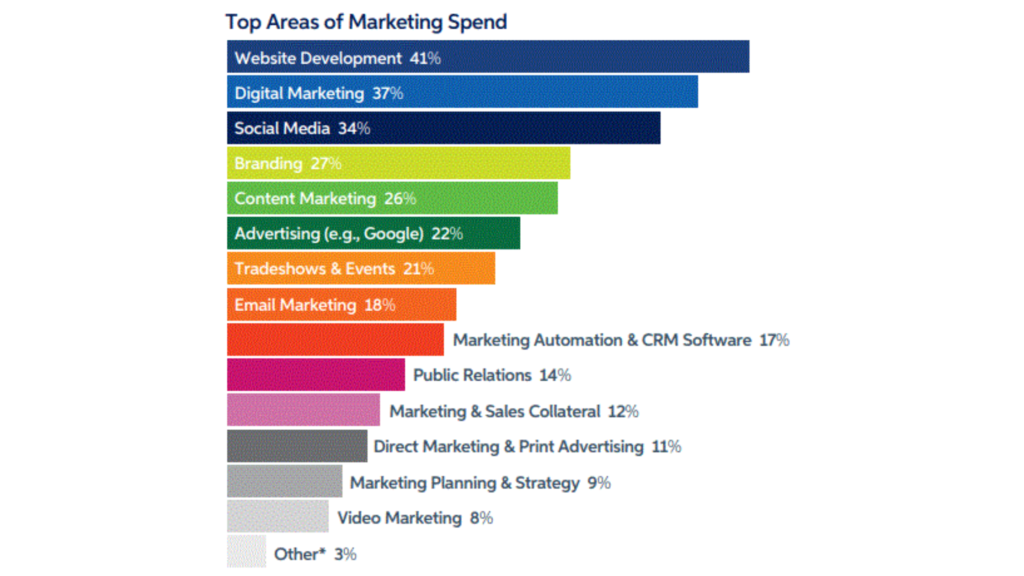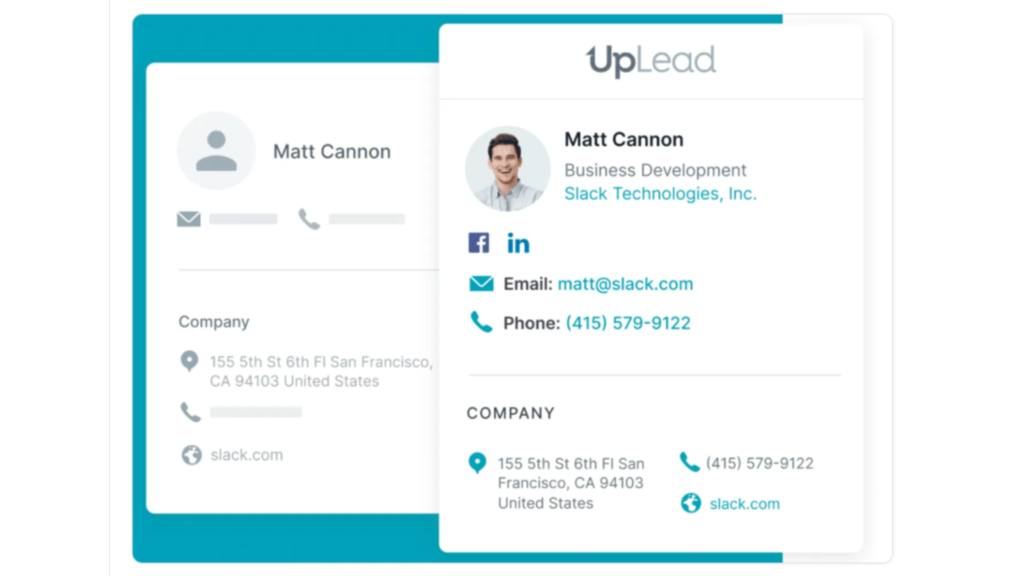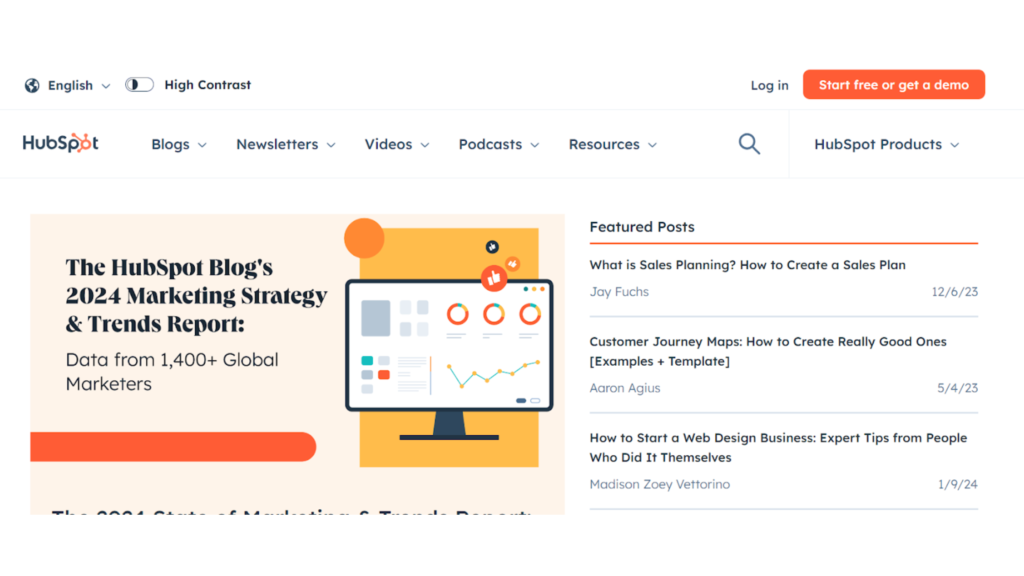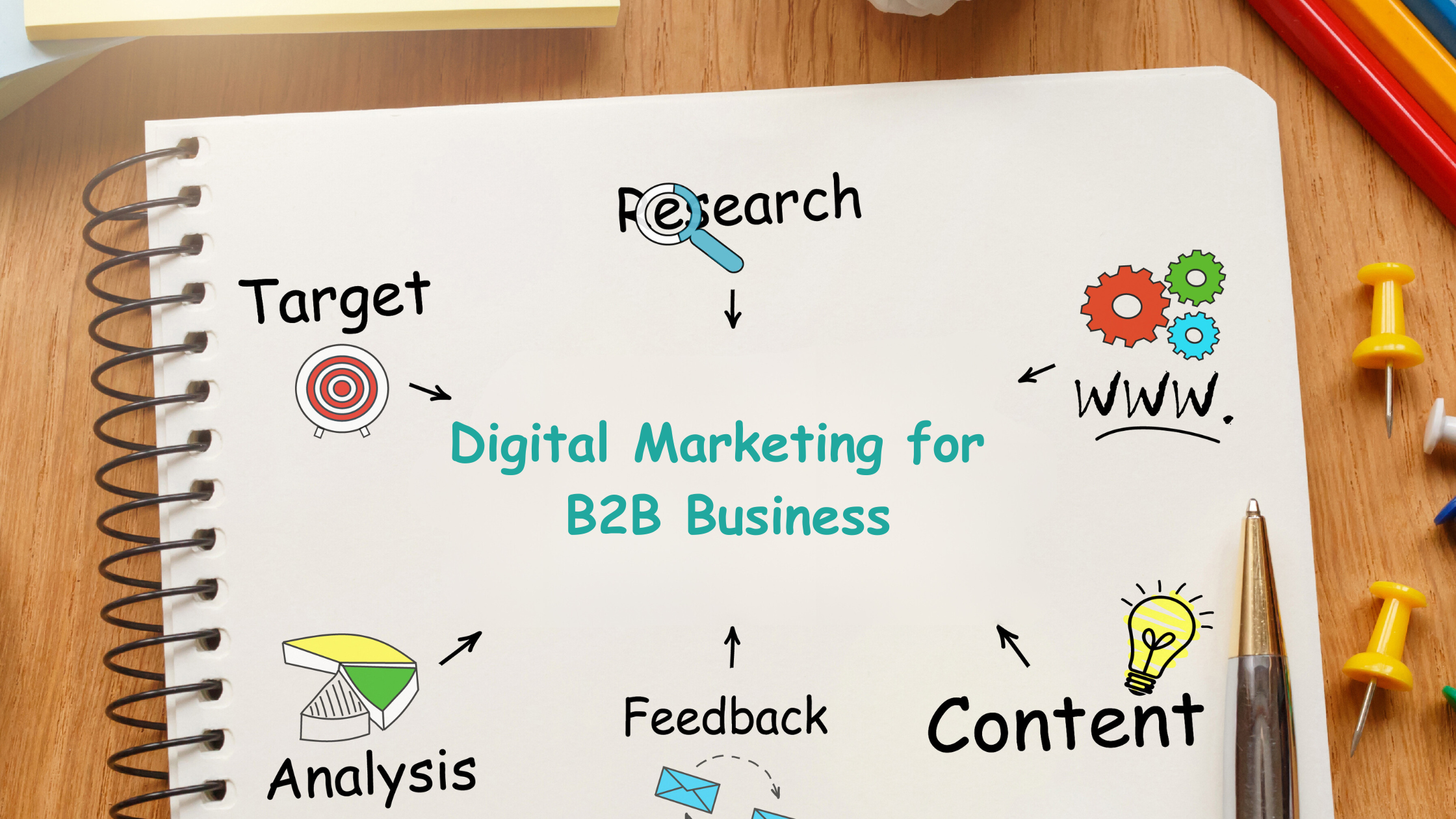Any follow-ups can be nerve-wracking especially when it comes to B2B sales. There are two questions here: what content should be put in follow-up...
Gone are the days when traditional marketing held sway.
In the fast-paced landscape of business, relying solely on traditional marketing methods is no longer sufficient, especially if your target audience is other businesses. The advent of the digital era has transformed the way companies interact and make purchasing decisions. In the absence of a robust B2B digital marketing strategy, you run the risk of lagging behind your competitors who have embraced the shift.
According to the insights from a Sagefrog Marketing Mix report, a substantial 37% of B2B companies consider digital marketing as their primary area of marketing expenditure. To maintain a competitive edge, B2B businesses like yours, which cater to other businesses, must adopt effective marketing tactics and leverage the right tools in the digital realm.

In this blog post, we will delve into the essence of B2B digital marketing and uncover key digital marketing tactics that can propel your business growth.
What is B2B Digital Marketing?
B2B Digital Marketing refers to the comprehensive array of marketing strategies and technologies employed by B2B (business-to-business) companies in the online sphere. The primary objective is to promote and sell products and services to other businesses through various digital channels.
To break it down further, B2B digital marketing leverages online platforms, tools, and tactics to reach and engage a target audience consisting of businesses rather than individual consumers.
This multifaceted approach involves utilizing websites, social media, email campaigns, content marketing, and other online channels to create brand awareness, generate leads, and ultimately drive business-to-business transactions.
How Does B2B Digital Marketing Differ From B2C Digital Marketing?
Distinguishing B2B digital marketing from its counterpart, B2C (business-to-consumer) marketing, lies in the target audience. B2B marketing is directed at businesses and decision-makers within those organizations, focusing on establishing long-term relationships and providing solutions to meet their specific needs.
On the other hand, B2C marketing targets individual consumers, aiming to capture their attention and drive immediate sales by emphasizing factors like emotion, convenience, and personal preferences.
In essence, while B2C marketing typically involves shorter sales cycles and appeals to individual emotions, B2B digital marketing is characterized by longer sales cycles, relationship-building, and a focus on addressing the unique challenges and requirements of businesses.
Understanding these distinctions is crucial for tailoring B2B digital marketing strategies effectively to the specific demands of your business.
Benefits of Digital Marketing for B2B Businesses
In the realm of B2B, effective digital marketing can significantly enhance a company’s online presence, amplify brand recognition and web traffic, facilitate lead generation and conversion, and ultimately propel sales growth. Here, we explore the key advantages of online marketing for B2B enterprises:
Cost-Effectiveness of Digital Marketing Over Traditional Approaches
When executing strategies such as PPC campaigns, scheduled emails, or retargeting ads, the costs are notably lower compared to traditional advertising. This is primarily due to the precision and targeting capabilities inherent in digital campaigns.
Expanded Business Opportunities
By strategically positioning your business across diverse digital channels, you increase the chances of potential customers discovering your offerings and gaining insights into your products and services. B2B digital marketing also provides the means to nurture leads and guide them through the conversion funnel.
Insightful Data Acquisition
Engaging in digital marketing campaigns allows for direct interactions with B2B buyers. This process yields valuable insights into the factors influencing purchasing decisions, enabling continual refinement and enhancement of campaign effectiveness.
Focus on Ideal Customer Identification
The foundation of any digital marketing strategy lies in precisely identifying the target market and decision-makers within businesses. Campaign data helps further refine the ideal customer persona, ensuring tailored and impactful messaging.
Measurable Success with Comprehensive Metrics
In contrast to traditional marketing, B2B digital marketing offers an array of metrics to gauge success. Metrics include Marketing Qualified Leads (MQLs), Sales Qualified Leads (SQLs), web traffic, cost per acquisition, monthly recurring revenue, cost per lead, and overall Return on Investment (ROI).
High Return on Investment (ROI) Through Digital Marketing
One of the standout benefits of B2B digital marketing is its potential for a high return on investment. Lower costs, coupled with a deeper understanding of the target audience through diverse marketing channels, contribute to an efficient allocation of resources, preventing wastage and maximizing ROI.
5 Best B2B Digital Marketing Strategies in 2024
1. Harness the Power of AI
A significant 57% of B2B marketers opt for AI to automate chatbots, enhancing their understanding of customer needs and improving service delivery.
The integration of AI in content creation is also gaining traction. Tools like ChatGPT empower marketers to significantly boost their productivity, with approximately 44% of small businesses incorporating AI for content creation. However, the utilization of AI to generate entire articles is not as widespread, as the quality of content produced solely by AI remains a point of contention.
Marketers are increasingly incorporating AI into their content creation processes. But they are cautious about using it for direct content creation. This is because they recognize the potential penalties from platforms like Google for AI content that lacks reader value.
Instead, B2B marketers leverage AI for support in segmentation, automation, outlining, and idea generation. Despite businesses allocating over 20% of digital budgets to AI, there seems to be minimal impact on freelance hiring. Executives report outsourcing 20.2% of their activities, with expectations of a potential 5% increase by the end of 2024.
An excellent illustration of AI integration in B2B marketing is Salesforce, which employs AI-driven chatbots to enhance customer interactions on their platform. This automation not only improves customer engagement but also streamlines the support process, showcasing the practical benefits of AI in B2B marketing.
2. Utilize Video Marketing, Especially Short-Form Videos
B2B marketing trends evolve. Yet certain strategies remain relevant, and for 2024, directing your attention to video marketing is crucial.
Video content maintains its dominance due to its versatility and capacity to convey substantial information in a brief timeframe. Consider the following statistics highlighting the impact of videos:
> 60% of social video viewers prefer short videos on platforms like Facebook.
> An astonishing 167 million TikTok videos are viewed in just one minute.
> Users spend 88% more time on pages featuring video content.
These statistics underscore the preference for video content, making it a compelling method to capture user attention.
In 2024, a strategic focus on short-form videos is advised for your video marketing efforts. With platforms such as Instagram and TikTok on the ascent, the popularity of short-form videos makes them the preferred choice to engage and connect with your audience effectively.
The best B2B videos to produce are
> Case Study Videos – Crafted to persuade potential clients, case study videos showcase your expertise and demonstrate successful outcomes for clients similar to your prospects. The ideal Usage for case study videos are middle and bottom stages of the sales funnel.
> Testimonial Videos – In the B2B realm, the trust of consumers is often influenced by the experiences of other buyers with brands. Employing testimonial videos proves to be a powerful strategy for B2B companies, presenting their top success stories in a compelling and easily digestible video format.
3. Streamline Efficiency Through Automation
In the landscape of B2B marketing, the year 2024 calls for a pivotal reliance on automation to elevate the effectiveness of your strategies. This strategic approach involves deploying software to seamlessly execute time-consuming marketing tasks, optimizing your workflow.
Unlock the potential of automation by effortlessly managing tasks such as:
> Email Management: Leverage automation tools to streamline the process of sending emails, tracking their performance, and more.
> Data Collection and Processing: Harness the power of marketing automation tools to facilitate the collection of campaign data and its efficient processing, revealing valuable business insights. Tools such as UpLead provide a means to gain deeper insights into your B2B prospects at a personal level. By uploading a list of emails, you can access information such as your prospects’ names, titles, phone numbers, social links, and more.

> Social Media Posting: Stay consistent and engage your audience effortlessly with the help of social media scheduling tools, ensuring automatic content posting on your pages.
> Lead Segmentation: Utilize automation tools to effortlessly segment your leads, enabling the delivery of more personalized marketing materials tailored to their specific needs.
4. Unleash the Power of Content Marketing
Once your company website is in place, the next imperative step is to establish a blog and initiate content marketing. This strategy not only plays a pivotal role in enhancing your SEO but also positions you as an authority within your industry.
B2B content marketing involves deploying a set of strategies to:
> Raise Brand Awareness
> Engage Other Businesses
> Generate Leads
> Boost Sales
It’s crucial to note that B2B content marketing differs significantly from B2C, owing to distinctions in the buyer’s journey and decision-making process.
While the B2C sales cycle revolves around generic customer needs and benefits, B2B buying decisions are influenced by specific pain points and considerations pertinent to each prospect and their decision-makers as a group.
Consequently, B2B sales cycles are typically more extended and intricate, avoiding quick or impulsive purchase decisions.
To effectively target B2B buyers with content, employing a diverse range of content formats is essential. This approach allows you to showcase industry expertise, and inform, inspire, and engage prospective buyers while addressing their specific pain points.
HubSpot serves as a prime example of a B2B brand employing this strategy effectively. Their blog encompasses various content assets, including blogs, newsletters, videos, podcasts, and more.

The top five preferred content assets by B2B marketers include:
> Blog Posts
>Infographics
> Gated Content
> Videos
> Podcasts
Effective B2B content marketing practices include:
> Creating content for all stages of the funnel
> Producing multi-layered content
> Personalizing your strategy
> Repurposing content for versatility
> Utilizing marketing storytelling
> Optimizing content for SEO
> Addressing thin content concerns
> Choosing the right distribution channels
5. Invest in Email Marketing
Incorporating email marketing into your B2B digital marketing strategy can prove to be a valuable asset.
Email serves as an effective tool for capturing interest in your products and services, generating leads, and driving conversions.
Consider this—email holds a prominent position among the top ten channels utilized by B2B decision-makers throughout their decision-making journeys. It is acknowledged as the most successful content distribution channel by 79% of B2B marketers.
What does this signify?
Email emerges as the optimal channel for initiating and cultivating relationships with potential clients.
Furthermore, B2B email marketing has the potential to ignite engagement, leading to increased leads and conversions, ultimately contributing to enhanced revenue for your business.
Here are actionable B2B email marketing strategies to implement:
> Utilize a comprehensive email marketing tool.
> Develop and regularly refine your email list to minimize email bounce rates.
> Segment your email lists to enhance targeting precision.
> Implement drip email campaigns.
> Employ autoresponders to nurture your leads.
> Track and analyze results, allowing for effective re-engagement with prospects.
Conclusion
As we approach 2025, a remarkable 80% of B2B sales interactions are anticipated to unfold in digital channels. This shift is more than a trend; it’s a pivotal transformation that demands immediate action. For those yet to embark on the B2B digital marketing journey, this is the right time to start.
Stay ahead of the curve by implementing the B2B digital marketing strategies detailed in this blog. These tactics are tailored to position you as a frontrunner, ensuring you not only compete but thrive in the evolving landscape.
If you find yourself unsure about where to begin, leverage our professional digital marketing services at DealsInsight. Let us guide you through the dynamic realm of B2B digital marketing, ensuring your business is primed for success in the digital age.
Don’t just keep up – lead the way with DealsInsight B2B digital marketing services.




